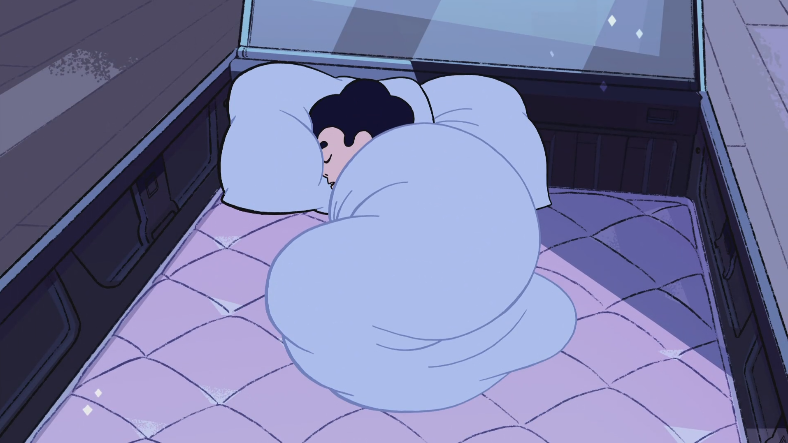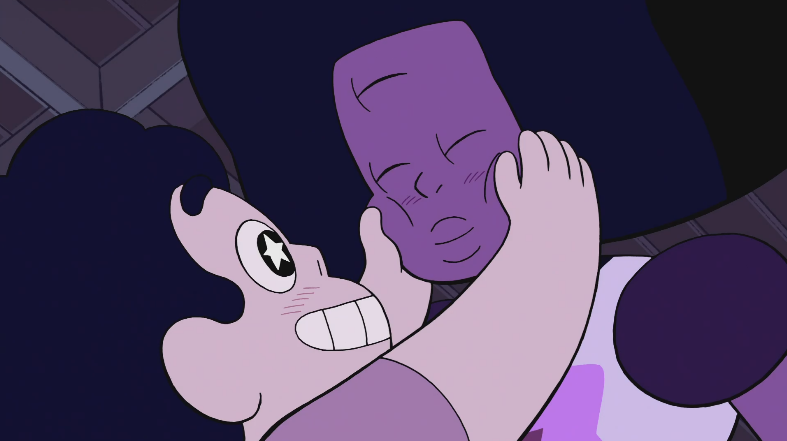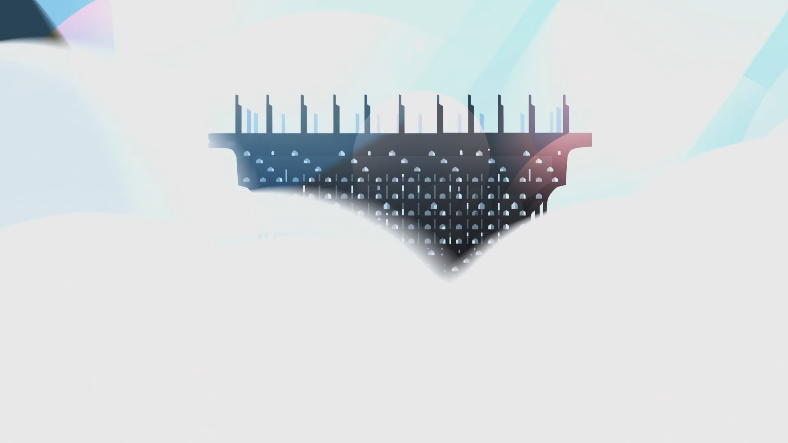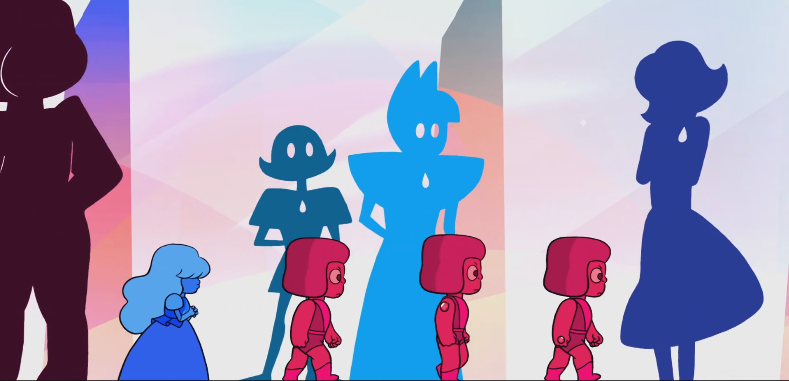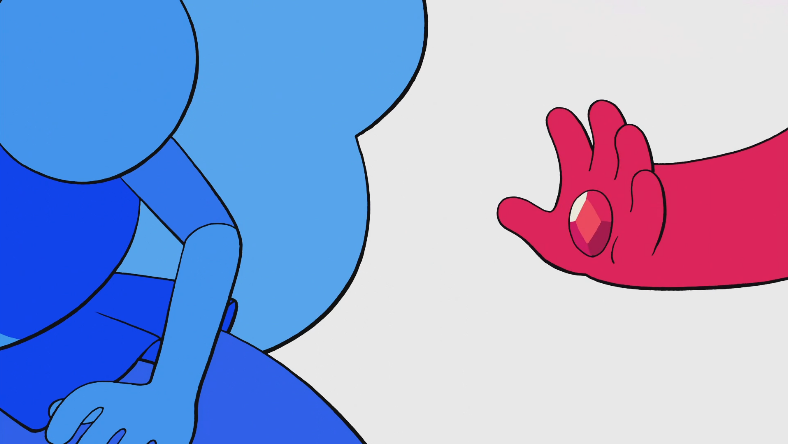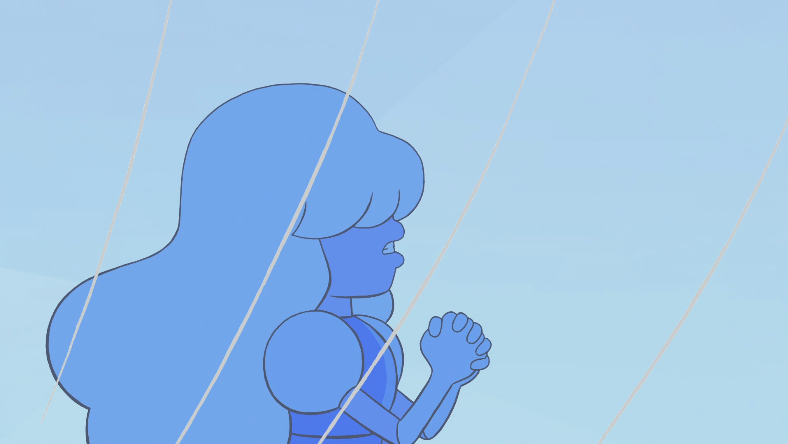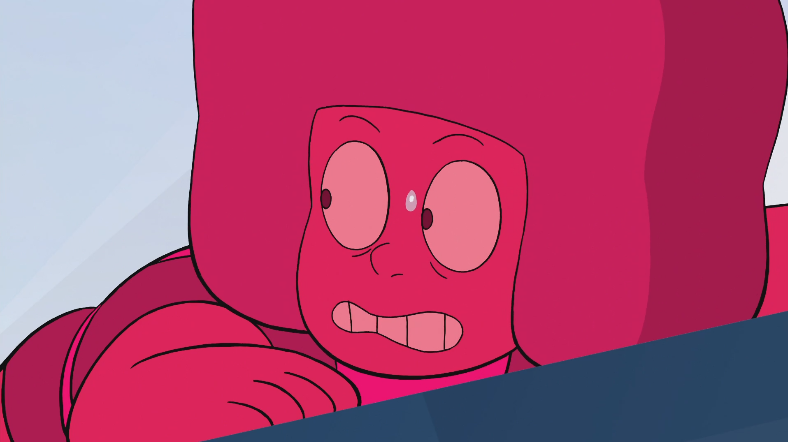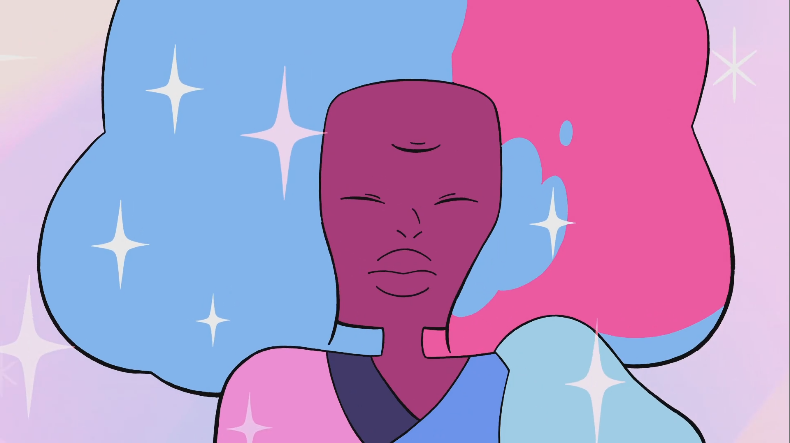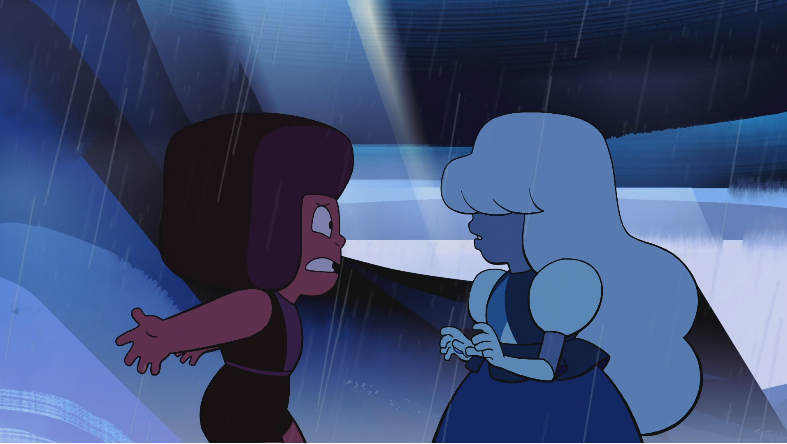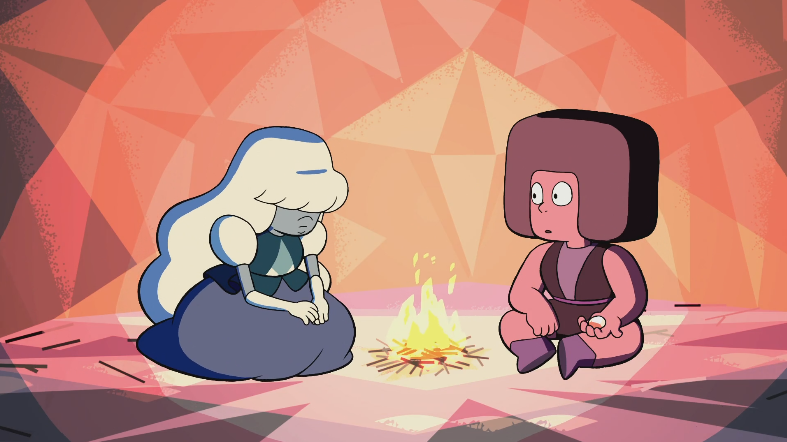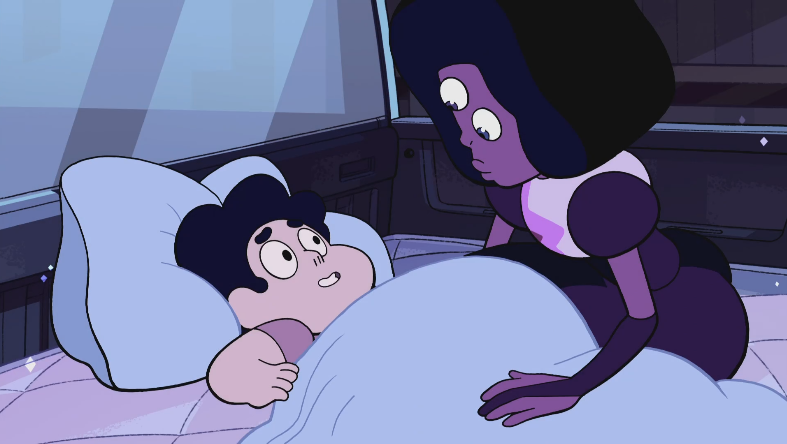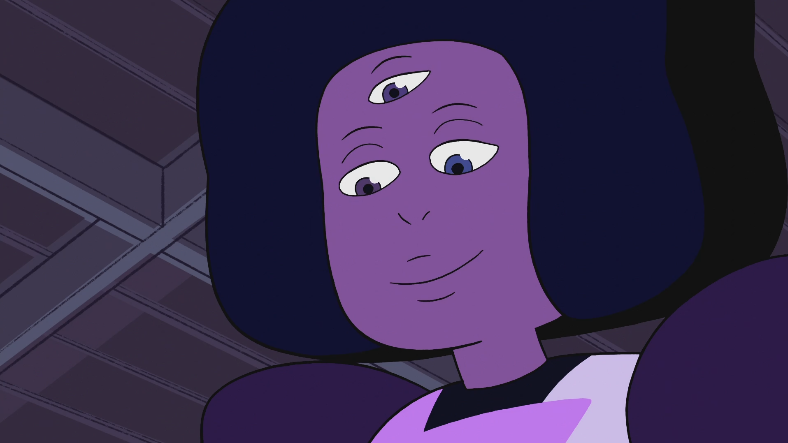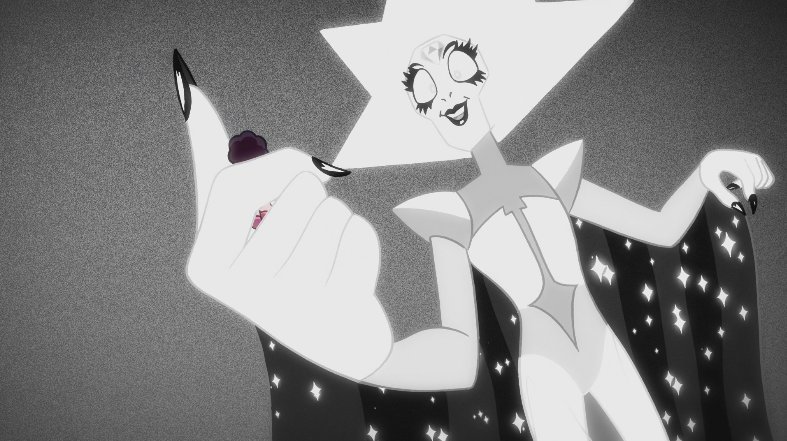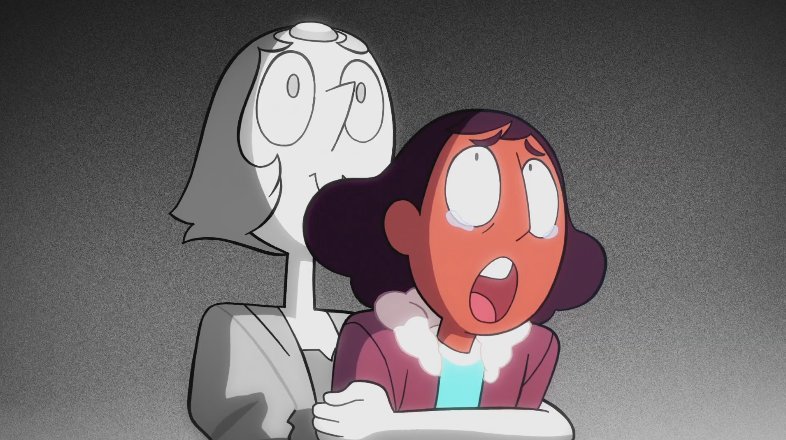Audible Dissonance
Many alt-periodical grafs have gone toward the five seasons of trans subtext that the “Diamond Days”/Homeworld arc brings to the fore and nails down as Kinda The Point Of This Whole Deal. What I’ve not seen discussed is how “Legs from Here to Homeworld” states its thesis on that.
Maybe because the episode was posted online several months before broadcast, so most of the commenting class didn’t first it in the specific context of the 90 minutes of theme-dump that it served to introduce. Maybe because since the bulk is set on Earth, it feels less connected.
What gets me about the episode more than anything, though, is its first scene. We have a few seconds of dialog that summarizes what happened in the last episode, to catch people up. And then, Yellow stomps up to drag us into the story.
“How could you do this to us, Pink? Why did you let us think you were shattered? Why the strange disguise? Why are you doing a voice? Why didn’t you say something at the trial?”
Yes, it’s expository. Yes, it’s functional. But take another look. I’m talking about the weird part.
“Why are you doing a voice?” she asks.
…
Yikes.
That’s not a throwaway line.
There are all these in-jokes that aren’t really jokes, right, about what people actually want from a transition versus what everyone assumes and even tells them they really want. Usually (not always) the highest priorities have to do with immediacy: simple everyday signifiers.
Things like one’s face, one’s voice, hair, that from moment to moment help affirm a person’s identity, to one’s self and others. Voice is a subtle yet major one; you can do a lot of things with your face or your hair or your wardrobe. Your voice, though, that’s more difficult.
It’s harder technically, and it’s more existential. To a significant extent, we all associate our voice with who we are. We talk about our sense of identity as our inner monologue. You often can tell more about a person from their voice than from their face. I know I tend to.
So, it’s kind of a big question mark for someone in the middle of a transition. Like, what do we do about this, then? On the FtM end, hormones can have some effect. MtF, not really. If there’s a solution, it tends to be voice training, which is fine, but it brings its own issues.
The most obvious problem is that it’s hard. It takes a ton of practice; a ton of time; a ton of investment. It’s exhausting, stressful. It’s hard to keep up all the time, to get to the point where it clicks and starts to feel sometimes right, sometimes natural, and then a habit.
The bigger problem goes back to the existential thing, which goes back to the basic anxiety at the core of so much of the trans experience. It’s that basically what it comes down to is a performance. Which makes it a big pressure point for the whole delicate cognitive lattice.
The nature of coming to grips with one’s gender identity, it’s about a search for truth, right. Realigning one’s self-concept with what’s actually going on neurologically, emotionally; with the way one’s brain is in fact wired, regardless of what others have always insisted.
But like any search for truth, there’s always this sense of, well, but what if I’m wrong? What if what everyone’s been telling me my whole life is right, and I’m just having this episode, deluding myself? What am I even doing? That doubt, it’s often, usually not that far away.
Which is the button that White Diamond serves to hammer on like a maniac some 75 minutes later. But for the moment we’ve got Yellow Diamond, confronting Steven about why he’s “doing a voice.” Which sets the scene for eight episode-slots of pointed existential invalidation.
Like. Most of the things that go into a transition, they’re nouns that one wears. A voice is a verb, that one acts. Your voice is your voice. It’s the key to everything in a way. And to enunciate one’s truth necessitates a performance. Granted we’re all a story, but. Well.
To single out Steven’s voice in particular as a signifier of “Pink” just pretending, playing a little game, it’s such an easy blow, and in the context of what the show is talking about during this arc, there’s no way that line is in there by accident. Few lines in this show are.
I mean, yes, surface level it’s a non sequitur, or nearly so; a gag of the rambling train-of-thought mode that the show often employs. On a metatextual level there’s the fact that actually, Zach Callison has been affecting Steven’s voice since halfway through the first season.
But more to the point, it’s there to sting, on a thematic level. That outright dismissal of something that, in a real world context, would have taken so much work, be such an easy pressure point to all of one’s existential doubts… it’s really nailing down where this is going.
I just, I felt like drawing out that sequence of words. They struck me the first time I heard them, even though my head wasn’t completely in a place to interpret them at the time, and they’ve stayed with me since. They stand out more than anything else in that first chapter.

